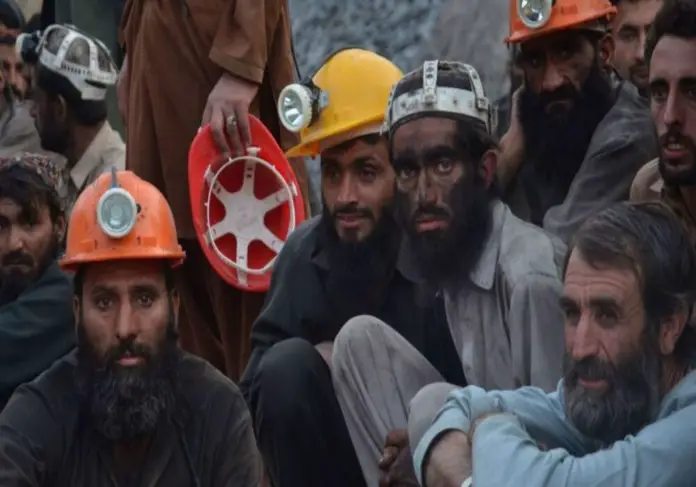The Human Rights Commission of Pakistan (HRCP) has expressed grave concern over the vulnerability of coal miners in Balochistan to ‘severe’ human rights violations.
An official statement by HRCP Chairperson Hina Jillani, released on Friday, said that the rights organization’s fact-finding mission was ‘gravely concerned’ to find that coal miners in Balochistan were vulnerable to severe human rights violations. The statement highlighted the fact that at least 176 miners had lost their lives and 180 had been injured in mining accidents in 2021.
The HRCP also mentioned in its statement that miners were at the risk of being targets of violence by non-state actors.
It also said that onsite healthcare was not a norm, but rather an exception. It emphasised the need for mine owners and contractors to ensure regular safety inspections, and that mining sites should have a functioning ambulance service along with onsite emergency health workers.
It also raised concern over the fact that when it came to external safety inspections, only 27 mine inspectors were available to look over the health and safety matters of over 6,000 mines in Balochistan.
Moreover, the fact-finding mission revealed how a majority of coal miners lacked social security and were ineligible for employment benefits or pensions. The HRCP further expressed concern that the compensation for death and injury was lower in the province (Rs300,000) than other provinces (Rs500,000), which it said must be rectified promptly.
The HRCP statement also shed light on how labour union representatives were unhappy about the contractor system in place to operate mines, as contractors had a lesser stake in making sure that the workers were safe and secure. It added that there also existed a potential conflict of interest as there were cases wherein contractors were themselves functioning as the heads of labour unions.
The rights organization also made recommendations in its statement, saying that the status of the coal mining sector should be upgraded to that of an industry so that owners of mines and contractors could be held responsible for running their sites in line with the Mines Act 1923 and subsequent amendments.
The HRCP further called upon the government to implement the International Labour Organization’s Convention 176 on health and safety in mines.
The rights organization further urged that the state should make an investment in “health, education and infrastructure in and around coal mining areas specifically and across the province in general”.







